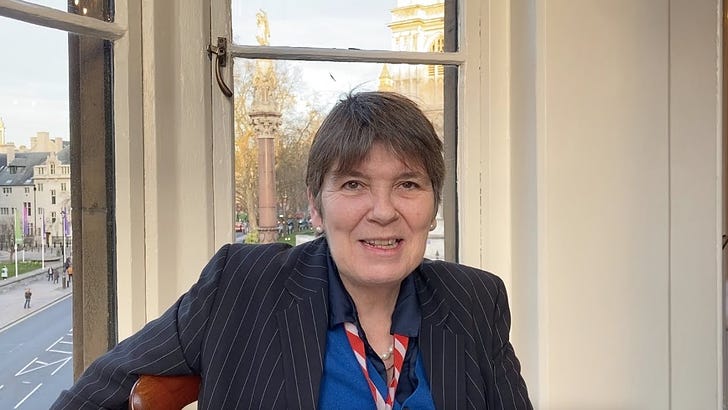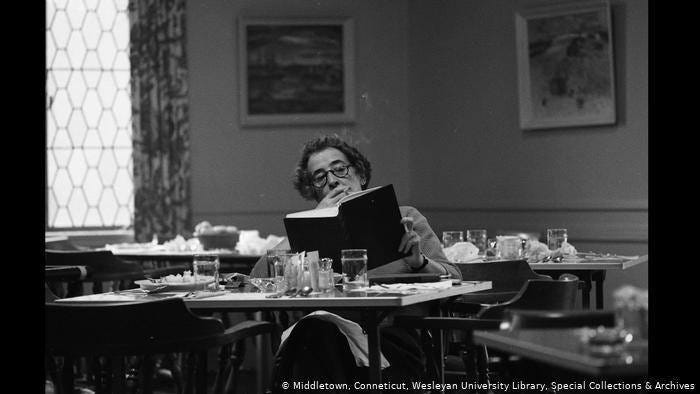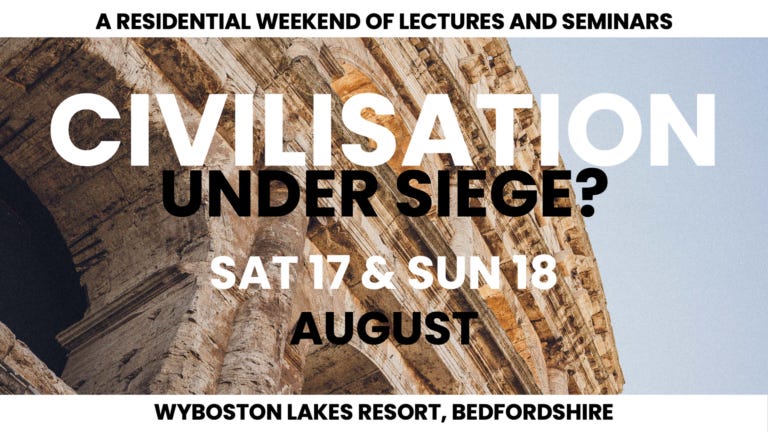Inside the Lords - remembering the 136
Claire Fox reports on a week inside the House of Lords: from attacks on sovereignty hiding behind international law to failures in real international solidarity by watering down the Holocaust.
A lot went on inside the Lords this week. It's four years since Brexit day (almost eight since the vote!) and it’s worth remembering how important it was that democracy did prevail, that we did win a victory in getting the vote realised against all the odds. The tools for sovereignty are now well and truly in UK politicians’ hands. It might be true that our politicians have not taken the opportunity to build on the demand for that democratic realignment of politics, but the potential is nevertheless always there now that we are out of the EU.
One example of a failure to use these sovereign powers has to be in relation to controlling our borders, so the week started with the Safety of Rwanda (Asylum and Immigration) Bill which came to the Lords for a second reading on Monday. I was one of the many whose speech was critical of the proposed legislation, but less like my fellow Lords who focused endlessly on international laws and treaties and more because the Bill just misses the bigger picture. The government has decided to use this plan to try to show that it is doing something about immigration, despite everyone knowing that that something is ridiculous. Things could be different - from leaving the ECHR to a thorough shakeup of our asylum process - but the Conservatives have instead become stuck in a row over whether one particular African country is safe or has a good or bad human-rights record. And anyway, the Lords have promised to gut the Bill through endless amendments, ensuring that there is little hope that anyone will get on one of those flights.
One thing is for sure, the success or failure of that Bill will certainly not be the last word on immigration. In fact, the discussion has moved on to much more than simply the small-boats issue. So often, the public feel migration is out of control because of decisions taken above our heads; that all sorts of lawyery decisions and policies mean voters are being deceived and taken for a ride. Details of how the ‘Christian’ Clapham corrosive attacker was eventually given asylum status, despite being a convicted sex offender, are understandably causing anger. Or, using another example, I asked a question this week about universities pretty much selling visas alongside university places for international students at eye-watering prices. Not only is this unfair on foreign students essentially funding the ludicrous expansions of universities, it shows how unorganised and undemocratic our current immigration system is.
Though very hard to listen to, it was a privilege to hear the harrowing and terrible testimony of people who were involved in gathering evidence of the 7 October pogrom - emergency workers, family of hostages and people who worked with victims. I won’t ever forget it - the room was packed and silent as we listened to women like Ashley Waxman Bakshi, whose cousin Agam Berger is still being held as a hostage.
If the testimony was heartbreaking, the reason for it was even more so - these women were there to make sure that the rape and brutalisation of women during that attack was known and believed. They had toured other governments and politicians, giving their story.
Looking at the forensic focus and attention that was given to Pestminster or MeToo, it is striking to think how little belief these dead girls and their advocates who spoke to us have been given. The day after, I made a speech on Holocaust Memorial Day which I dedicated to the 136 hostages still being held.
Next week will all be about tackling gender ideology. I have amendments on Monday evening relating to women’s only services and accurate sex-based data collection (see here). Friday will be the debate on a proposed new Conversion Therapy Bill - stay tuned and make sure to subscribe to this Substack for all Inside The Lords and Academy of Ideas updates.
Upcoming Events…
Living Freedom University Salon - What can we learn from… Hannah Arendt?
6.00pm, Tuesday 6 February; Oriel College, University of Oxford
Speaker: Jacob Reynolds
Open to all and free to attend. Reserve a place here.
Living Freedom University Salon - Why social media is not the problem
6:00 pm, Thursday 15 February; Selwyn College, University of Cambridge
Speaker: Timandra Harkness
Open to all and free to attend. Reserve a place here.
Living Freedom University Salon - What can we learn from… Frederick Douglass?
4:00 pm, Friday 16 February; South College, University of Durham
Speaker: Dr Alka Sehgal Cuthbert
Open to all and free to attend. Reserve a place here.
Full Living Freedom series details available here. Organised by Ideas Matter.
Birmingham Salon - AI – Separating Man From Machine
1pm, Saturday 10 February; Map Room, Cherry Reds, 88-92 John Bright Street, B1 1BN
Speaker: Sandy Starr
Tickets here.
Dido Powell’s London Gallery Tour 2024. Tour 1: Ugly Art
Sunday 11 February at 11am; Tate Modern
Tickets here.
East Midlands Salon - Self-Censorship: what daren’t I say?
7pm, Thursday 29 February; The Brunswick Inn, Station Road, Derby, DE1 2RU
Tickets here.
In the spring The Hannah Arendt Study Group will be hosting a two-part discussion on Hannah Arendt’s 1963 book Eichmann in Jerusalem: A Report on the Banality of Evil. The discussions will take place via Zoom, as usual. If you want to take part, and you are not already a member, please join the Group on Facebook.
The Hannah Arendt Study Group: Eichmann in Jerusalem: Session 1
Tuesday, 20 February 2024, 19:00–20:30
Introduction: Stefanie Borkum
Sign up here
The Hannah Arendt Study Group: Eichmann in Jerusalem: Session 2
Tuesday, 12 March 2024, 19:00–20:30
Introduction: TBC
Sign up here.
Is civilisation itself under attack? From wars in Ukraine or Israel to a culture war against foundational western values, some commentators suggest that we face not just a political battle over which direction to take, but a fundamental battle over civilisation as such.
But what is civilisation? How does it emerge? At the origin of the Western tradition, the distinction between civilised and barbarian formed a crucial part of our self-understanding. Yet today, the achievements of Western history are more likely to be regarded as tainted by colonisation than celebrated by elites. Is civilisation itself is seen as a dirty word?
As ever, The Academy will bring together people from all walks of life who are committed to rethinking some of the basic building blocks of political life. This year, we will look at what civilisation is, whether it is under threat, why it might be worth defending.
Tickets and more information: https://ideasmatter.org.uk/civilisation-under-siege-the-academy-2024





